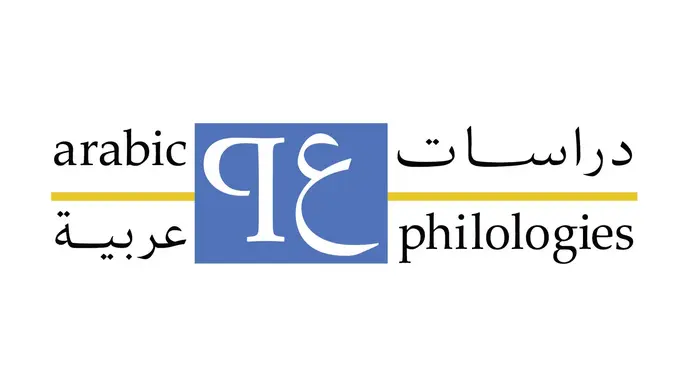South-South at Center Stage: Representations, Relations and Interactions Beyond the West in Arabic Studies
THIS CALL IS CLOSED!
Call for Applications -
Bilingual Summer School
28 - 30 August 2023, University of Münster, Germany
The summer school project “Arabische Philologien im Blickwechsel / نحو دراسات عربية برؤى متعددة” has a twofold agenda: to facilitate the systematic exchange of perspectives and experiences between scholars based in the West and in the Arab world, and to foster the use of Arabic as an academic language. Addressing young scholars (PhD students, postdocs) in the field of Arabic literary and cultural studies based in European and Arabic-speaking countries, it provides them with the opportunity to present their own research in an international academic context, to discuss current, innovative approaches to Arabic philology, literature and culture, and to practice the respective foreign language (English or Arabic).
This year’s summer school brings together junior and senior scholars from universities in Europe and the Arab world, working in the field of Arabic literary and cultural studies, both classic and modern, in a wide sense (including arts, history, philosophy, theology, linguistics, etc.) in order to discuss topics, methodologies and theories related to South-South interactions, relations and representations in Arabic language, literature, arts, media, culture and scholarly debate.
South South at the Center Stage
For a long time, Arabic and Islamic studies in Europe and North America have sought to analyze Arabic language and culture mainly in relation to Europe, the West or the Global North. This was part of a deep-rooted Eurocentrism that viewed the West as the center and the East as the periphery. With the rise of postcolonial studies, global history and attempts to ‘provincialize’ Europe, new concepts of identity, modernity and history helped to overcome the East-West dichotomy and to put South-South interactions at the center. Addressing this topic, the summer school explores an emerging field of research in Arabic and Islamic Studies. South-South cultural exchange is an essential key to the understanding of Arabic literature, arts and culture as well as modern Arab scholarship dealing with these practices. Arabic fiction, for example, tackles issues related to migration from Sub-Saharan Africa or Southeast Asia to Arab countries, and vice versa.
The Arab world has always had manifold cultural, religious and linguistic ties with regions other than Europe and North America. The influence of Persian and Indian literary traditions on their younger Arabic counterparts show the vitality of ‘travelling traditions’ and the ubiquity of entangled communities. Equally, cultural and economic exchange between Arab and non-Arab provinces of the Ottoman Empire plays a considerable role in the current historical research about the MENA region. This new perspective has allowed a shift from a Eurocentric historical paradigm to a better understanding of the Ottoman Empire’s spatial configuration and its evolution until the late 19th century. The aforementioned cases demonstrate how interest in South-South interactions, relations and representations generates much-needed knowledge that not only fills a gap but also provides the basis for revising key concepts in Arabic studies and developing new theories and methods.
The following main questions will be tackled during the summer school, and the projects of the participants should – at least partially – relate to one of them:
- How do Arabic literature and art deal with languages, cultural practices and artistic expressions of the Global South?
- How are the languages, literatures and artistic expressions in Arabic-speaking countries being dealt with in non-Arabic-speaking regions of the Global South?
- How does the intellectual and/or academic discourse in Arabic-speaking countries deal with languages, cultural practices and artistic expressions of the Global South?
- How does the intellectual and/or academic discourse in non-Arabic-speaking regions of the Global South deal with languages, literatures and artistic expressions in Arabic-speaking countries?
- Which kind of concrete collaborations and interactions exist between universities and research institutions in the Arab world and in other regions of the Global South in the field of Arabic studies? How do these cooperations and interactions work? (What languages are being used? Which Arab countries do exchange students from a particular region of the Global South choose and why?)
Find the complete call in Arabic and English here:
How to apply?
Please submit, in English or Arabic:
- an abstract of your research project (3−5 pages, including a passage related to the summer school’s thematic focus, i.e. South-South interactions, relations and representations in Arabic Studies)
- a short letter of motivation
- a short CV
- name, affiliation and email address of two academic references
Send all documents in one single pdf file to arabic-philologies[at]agya.info by 20 May 2023.
Do not hesitate to contact us for general inquiries.
Eligibility:
The call is open to young scholars (PhD students, postdocs) in the field of Arabic Studies based in European and Arabic-speaking countries.
Important Dates
20 May 2023 Deadline for submitting abstracts
20 June 2023 Preparatory meeting (online)
July/August Individual coaching sessions (online)
28 - 30 August 2023 Conjoint lectures and presentations (University of Münster, Germany)
Participation in all sessions is mandatory.
Members/Alumnae in Charge
- Barbara Winckler (University of Münster, Germany)
- Christian Junge (University of Marburg, Germany)
- Lobna Said (Nile University, Egypt)
- Peter Konerding (University of Münster, Germany)
Find more information here
International bilingual summer school program for postcolonial-sensitive teaching and research in Arabic Studies
Arabische Philologien im Blickwechsel / نحو دراسات عربية برؤى متعددة
